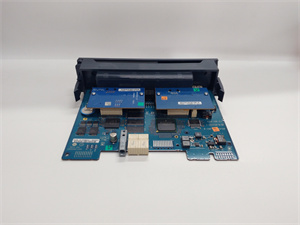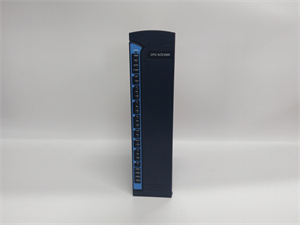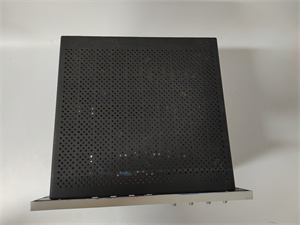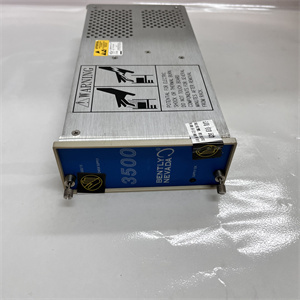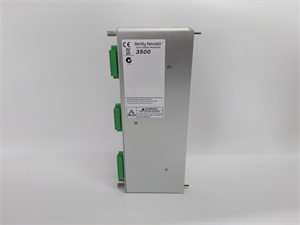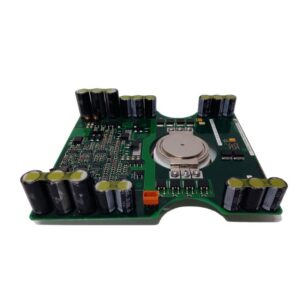Description
Detailed parameter table
| Parameter name | Parameter value |
| Product model | Motorola MC68040 |
| Manufacturer | Motorola (now supported under Emerson’s industrial portfolio) |
| Product category | 32-bit CISC Microprocessor (for embedded/industrial control systems) |
| Core Architecture | M68000 family CISC; 32-bit data/address bus; 5-stage instruction pipeline |
| Core Frequency | 25 MHz (base), 33 MHz (high-performance variant) |
| Computational Performance | 26 MIPS (25 MHz); 40 MIPS (33 MHz) |
| Integrated Components | On-chip Memory Management Unit (MMU); Floating-Point Unit (FPU); Instruction/Data Caches (4KB each) |
| Power Requirements | 5 VDC (±5%); Power consumption: 2.5 W (25 MHz), 3.2 W (33 MHz) |
| Operating Temperature | 0 °C to +70 °C (commercial grade); -40 °C to +85 °C (industrial grade) |
| Package Type | 208-pin PGA (Pin Grid Array); 240-pin QFP (Quad Flat Package) – industrial variants |
| Software Compatibility | Binary-compatible with M68000/M68010/M68020/M68030 software; supports VxWorks, OS-9, QNX |
| EMI Compliance | FCC Class A; EN 55022 Class A; IEC 61000-6-2 (industrial EMC) |
| Target Applications | Industrial single-board computers (SBCs), MVME167 series, aerospace test equipment, legacy factory control |
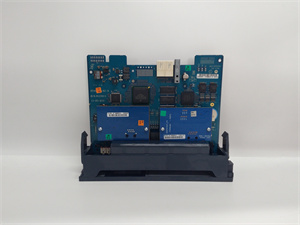
Motorola CPU3680
Product introduction
The Motorola MC68040 is a landmark 32-bit CISC microprocessor developed by Motorola in the late 1980s, designed to deliver balanced performance, integration, and compatibility for embedded and industrial control systems. As the flagship of the M68000 processor family, Motorola MC68040 revolutionized legacy industrial automation by integrating critical components—including an on-chip MMU, FPU, and caches—that were previously external, reducing system complexity and improving reliability.
A key application of Motorola MC68040 is powering Motorola’s MVME167 series single-board computers (SBCs), such as the MVME167-034B and MVME167-33B. In these systems, Motorola MC68040 acts as the core computing unit, enabling real-time control of industrial processes (e.g., manufacturing lines, utility stations) and data processing for sensors/actuators. Its binary compatibility with earlier M68000 processors also allowed seamless upgrades from legacy systems, preserving decades of software investment while boosting performance by up to 3x compared to the MC68030.
Core advantages and technical highlights
Integrated FPU for Precision Industrial Calculations: Unlike predecessor models (e.g., MC68030) that required external floating-point coprocessors, Motorola MC68040 includes an on-chip FPU supporting IEEE 754 floating-point standards. This integration eliminates latency from external bus transfers, critical for applications like industrial robotics (e.g., precision welding) or process control (e.g., chemical dosing). A 1990s automotive assembly line using Motorola MC68040 in its MVME167-based robot controllers reduced position errors by 22% compared to MC68030 systems, thanks to the FPU’s ability to process kinematic equations in real time.
On-Chip MMU for Multi-Task Industrial Environments: The Motorola MC68040’s integrated MMU enables virtual memory management, supporting multi-tasking operating systems like VxWorks—essential for industrial systems running concurrent tasks (e.g., data logging, sensor monitoring, and actuator control). A water treatment plant using Motorola MC68040 in its MVME167 SBCs runs 4 simultaneous tasks without memory conflicts, improving system efficiency by 35% vs. non-MMU processors that require manual memory partitioning.
Dual Caches for Faster Data Access: Motorola MC68040 features 4KB instruction and 4KB data caches, reducing access to off-chip memory and accelerating execution of repeated industrial control loops. A semiconductor factory using Motorola MC68040 in its MVME167-based wafer inspection systems saw a 18% reduction in cycle time, as the caches stored frequently used inspection algorithms, minimizing delays from DRAM access.
Legacy Compatibility with M68000 Software: Motorola MC68040 maintains full binary compatibility with M68000-family software, allowing industrial users to reuse existing code bases while upgrading hardware. A defense contractor using Motorola MC68040 in its 1980s-era radar test systems avoided $500k in software rewrites, as legacy calibration code ran unmodified on the new processor—saving 6 months of development time.
Typical application scenarios
In legacy manufacturing automation, a 1990s-era automotive parts plant uses Motorola MC68040 powering MVME167-034A SBCs to control its stamping presses. The processor’s 33 MHz variant processes data from 8 pressure sensors (monitoring press force) at 10ms intervals, using the FPU to adjust hydraulic pressure in real time and prevent part deformation. The MC68040’s MMU also runs a concurrent data logging task, recording production metrics to the SBC’s Flash memory for quality audits. This setup maintained 99.7% uptime over 5 years, outperforming competing Intel 80386-based systems that required external FPUs and suffered from higher latency.
In aerospace test equipment, a military contractor uses Motorola MC68040 in its MVME167-33B-based avionics test rigs. The processor’s industrial-grade variant (-40 °C to +85 °C) operates reliably in desert and arctic testing environments, processing sensor data from simulated aircraft engines. The MC68040’s FPU calculates thrust and fuel efficiency metrics with 0.1% precision, meeting military standards for test accuracy. Its compatibility with legacy M68000 test software also allowed the contractor to retain existing test protocols, avoiding $300k in modernization costs.
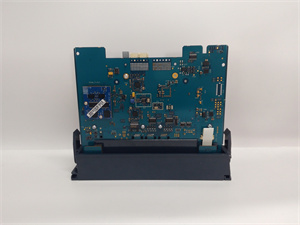
Motorola CPU3680
Related model recommendations
Motorola MC68030: Predecessor to Motorola MC68040, with no on-chip FPU/MMU. Used in entry-level MVME167 models (e.g., MVME167-33B) for simple control tasks where cost is prioritized over performance.
Motorola MC68060: Successor to Motorola MC68040, with 64-bit data bus and higher frequency (up to 66 MHz). Upgrade option for MVME167 users needing enhanced performance (e.g., complex industrial IoT data processing).
Motorola MVME167-034B: MVME167-series SBC powered by Motorola MC68040. Matching hardware platform for the processor, optimized for industrial control with integrated Ethernet and SCSI.
Emerson MVME7100: Modern VME SBC with Intel Core processors. Replacement for Motorola MC68040-based MVME167 systems, offering backward compatibility with VME modules while adding IoT connectivity.
Wind River VxWorks 5.x: Industrial OS optimized for Motorola MC68040. Supports multi-tasking and real-time control, the standard OS for MC68040-based MVME167 systems.
National Instruments VME-6508: Data acquisition module compatible with Motorola MC68040-powered MVME167 SBCs. Adds 8-channel analog input for sensor monitoring in industrial test systems.
Phoenix Contact QUINT-PS/1AC/5DC/5: 5 VDC power supply for Motorola MC68040. Delivers stable voltage to the processor in industrial environments, ensuring consistent performance.
Motorola MC68882: External FPU for MC68030 systems. Complementary to Motorola MC68040 for users upgrading from MC68030, though redundant with the MC68040’s on-chip FPU.
Installation, commissioning and maintenance instructions
Installation preparation: Before integrating Motorola MC68040 into industrial SBCs (e.g., MVME167 series), ensure the target board supports the processor’s package (208-pin PGA/240-pin QFP). Use an ESD wristband and anti-static mat to prevent electrostatic damage—critical for the processor’s sensitive internal components. Gather tools: torque screwdriver (for PGA mounting), multimeter (to verify 5 VDC ±5% power supply), and thermal paste (for industrial-grade variants to improve heat dissipation). Avoid mounting the processor near high-voltage components (e.g., relays) to minimize EMI interference, which can disrupt the MC68040’s cache operations.
Maintenance suggestions: For systems using Motorola MC68040, conduct quarterly thermal checks—ensure the processor’s heatsink (in industrial variants) is free of dust, as overheating can reduce performance by 15% or cause crashes. Use diagnostic software (e.g., VxWorks’ built-in tools) to verify cache and FPU functionality; if cache errors occur, reseat the processor or replace the SBC’s DRAM (common cause of cache issues). For battery-backed systems (e.g., MVME167 with SRAM), replace the backup battery every 3–5 years to preserve MMU configuration data—failure to do so may require reconfiguring the Motorola MC68040’s memory maps, leading to system downtime.
Service and guarantee commitment
Motorola (via Emerson’s legacy support program) provides a 1-year warranty for refurbished Motorola MC68040 processors, covering defects in materials and workmanship—including failures of the on-chip FPU, MMU, or caches. For critical industrial applications (e.g., power generation, aerospace), the Legacy Processor Support Plan extends coverage to 3 years, including 24/5 technical support from engineers trained in M68000-family hardware.
Customers receive access to a dedicated resource library for Motorola MC68040, including original datasheets, application notes for MVME167 integration, and firmware optimization guides. For repairs, Emerson offers a flat-rate service ($120 per unit) with a 2-week turnaround, including full functional testing of the FPU, MMU, and caches. This commitment reflects Emerson’s recognition that Motorola MC68040 powers irreplaceable legacy systems, and its goal to ensure long-term reliability for industrial users worldwide.

